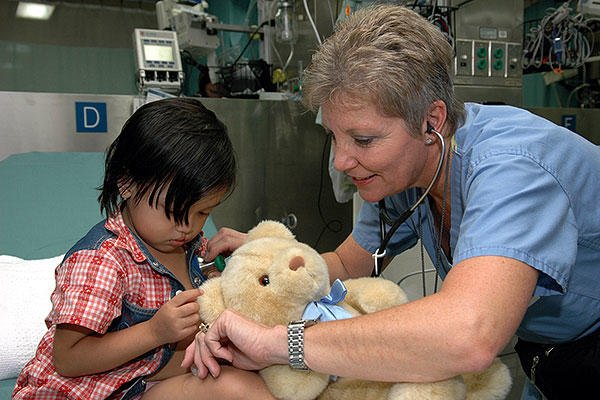Afraid you've made the wrong career choice? Don't panic. It's never too late to make a fresh start. Not only are today's workers more likely than those of past generations to switch employers several times during their careers, they're also more likely to change professions.
"Life is too short to do something that is not making you happy," says Susan Scher, MD. Fourteen years ago she opened a medical marketing and public relations firm in San Francisco after realizing she didn't want to practice clinical medicine. If the idea of continuing down the professional path you're on is more stressful than thinking about pursuing something new, you're probably due for a career change, she says.
Three successful career changers -- one who left healthcare, one who entered healthcare and one who went in a new direction within the industry -- tell why and how they took control, and the lessons they learned throughout the process.
From Phlebotomist to Programmer
Five years as a hospital phlebotomist was enough for Dorothy Power, a young mother from Hubbardston, Massachusetts. Power was tired of the risks involved in drawing blood, as well as the required holiday and weekend hours. "Morale was going down at the hospital, and my position seemed like a dead end," Power says.
Some of Power's former colleagues suggested she follow in their footsteps by attending Worcester Polytechnic Institute (WPI), which trains people for high tech positions. She attended the institute part-time for eight months, learning programming languages like Unix, C and C++. During her time at WPI, she attended two job fairs organized by the school. At the second event, she landed a job as a programmer/analyst at a medical billing software company. "My medical background helped me get the job," she says. "They liked the fact that I had seen the user side of their software at my hospital job."
At her new company, Power's starting salary was higher than what she was making after five years in phlebotomy. Plus, she's working regular hours. "I tell other people to go for it all the time," she says. "I was nervous going into it, but it turned out to be easier than I thought."
The bottom line: You can find a career more conducive to your lifestyle.
From Photographer to Nurse
Despite healthcare's current challenges, many people are still thrilled to be entering the field. Margaret Kaye is one of them.
Kaye graduated from college with an art history degree and then traveled extensively in Europe before returning to the US to work as a newspaper photographer. She had long considered becoming a nurse, but she made her decision during a photography trip to Bangladesh. She had gone there with Interplast, a nonprofit organization that sends teams of medical volunteers to developing countries to provide free reconstructive surgery to children. While on the trip, Kaye's job was to photograph the emotions of patients before and after their life-altering surgeries. "I realized I wanted to do more than take pictures," Kaye says. "I felt like I was on the outside looking in."
When Kaye returned home, she started taking courses required to enter nursing school. She enrolled at De Anza College in Cupertino, California, a few years later, and has no regrets about her decision. "With a skill set like nursing, I can go anywhere in the world and have a job," Kaye says. Like Power, Kaye believes a major career change is worth the effort. "It may be expensive and hard, but you only have one life," she says.
The bottom line: You have to be both enthusiastic and realistic about a career change.
From Marketing Manager to Entrepreneur
Ian Cordes of West Palm Beach, Florida, was lying in a hospital bed recovering from gallbladder surgery when he got some bad news. The chain of nursing homes he worked for as a marketing manager had been sold, and his regional office was being closed. "I was totally stunned," he says. "I didn't see it coming."
When he got out of the hospital, Cordes was offered another position in the company, but it wasn't a job he wanted. "When I said no, I wasn't thinking about the consequences, which is probably a good thing or I'd still be there," he says. Cordes sent out dozens of resumes and letters and contacted headhunters. But since he wanted to stay in the realm of long-term care marketing, he couldn't find the right opportunity.
Fortunately, he received severance pay for several months. He devoted that time to learning how to use computers and desktop publishing programs like Pagemaker. A few months after his layoff, he launched his own business, called Corecare, and landed a newsletter account with the state's long-term care association.
His industry contacts also came in handy. "Folks who used to provide goods and services to me started to hire me to do their marketing, advertising and brochures," Cordes says. "I really leveraged what I knew and who I knew in terms of my network, and I've met a lot more people since then."
The first five years were "difficult," he says, and his wife worked full-time just to get health insurance. But he knows he made the right move. "It seemed daring at the time, but I knew if I didn't take the step then, I'd never take it," he says. Being an entrepreneur "is really very satisfying, and it all happened almost by accident," he says.
The bottom line: If you're transitioning to a new career within the healthcare industry, take advantage of your skills, past experiences and network of contacts.











